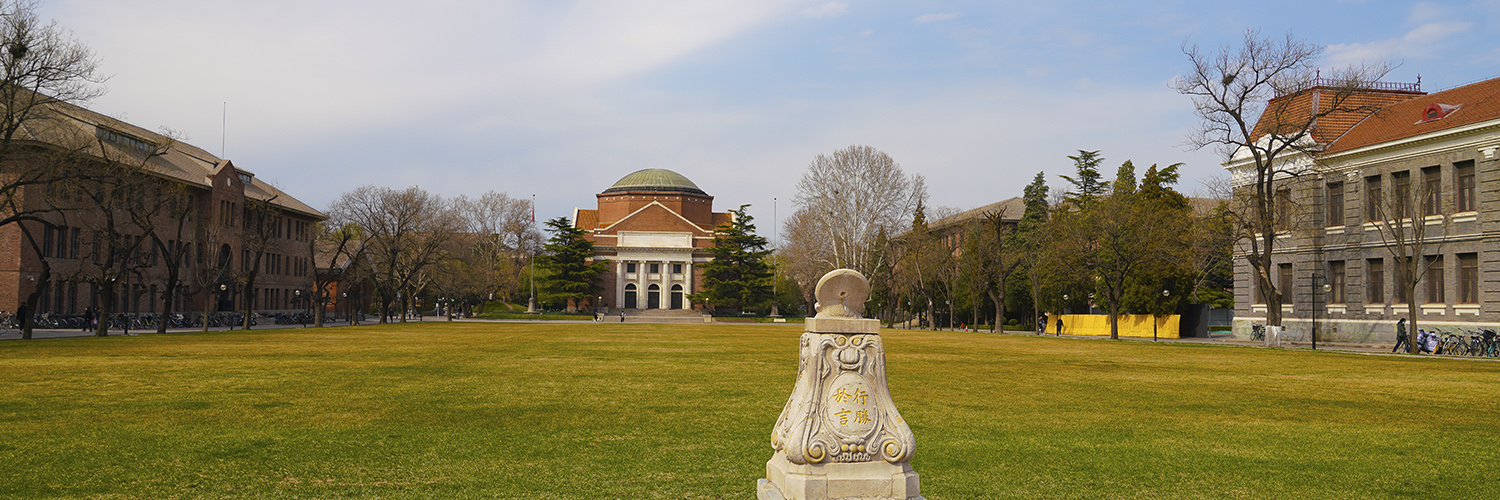On May 16, 2024, our Department hosted the second international workshop of the project Cosmography of Historical Waterscapes (supported by Tsinghua University Initiative Scientific Research Program Grant Nr. 20233080008). Entitled “Cosmological Waterscapes: Historical Hydrology and Present-Day Planetary Concerns,” the workshop addressed historical questions on waterscapes in different localities across the world by exploring the epistemological connection between cosmological and ecological knowledge in water-landscapes. This session delved into philosophical and utopian perspectives, as well as historical case studies from various cultures, localities and historical times (ranging from the Kaveri Delta in India, the transformation of Tenochtitlán/Mexico city, watering systems in medieval Arabia and Persia, and Venice, in Europe).
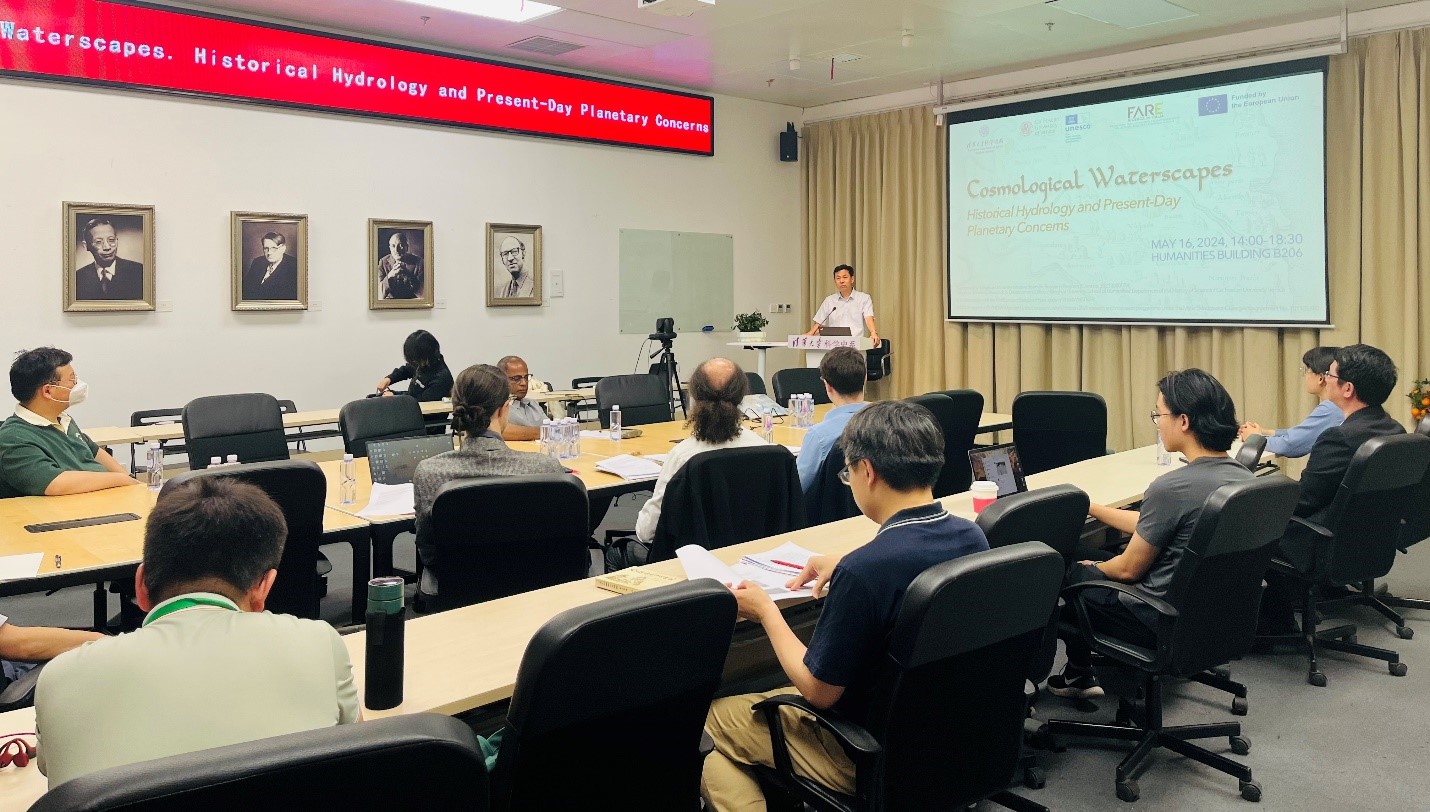
The meeting commenced with welcoming greetings from Department Chair Guosheng Wu, who emphasized the role of the concept of “水利” from the Chinese philosophical tradition, signifying both the protection of waters and the efficient use of water resources. Introductory speeches by Alberto Bardi (Principal Investigator) and Pietro Daniel Omodeo (Main Overseas Researcher of the project, Professor at Ca’ Foscari University of Venice) focused on the significance of water in shaping human history and on history as the outcome of human choices. Omodeo and the guest scholars were presented gifts by Wu, and Omodeo, in exchange, brought a copy of the latest publication from the series “Verum Factum,” namely the English translation of the Italian classic of political epistemology The Bee and the Architect ( https://verumfactum.eu/volumes/the-bee-and-the-architect/).
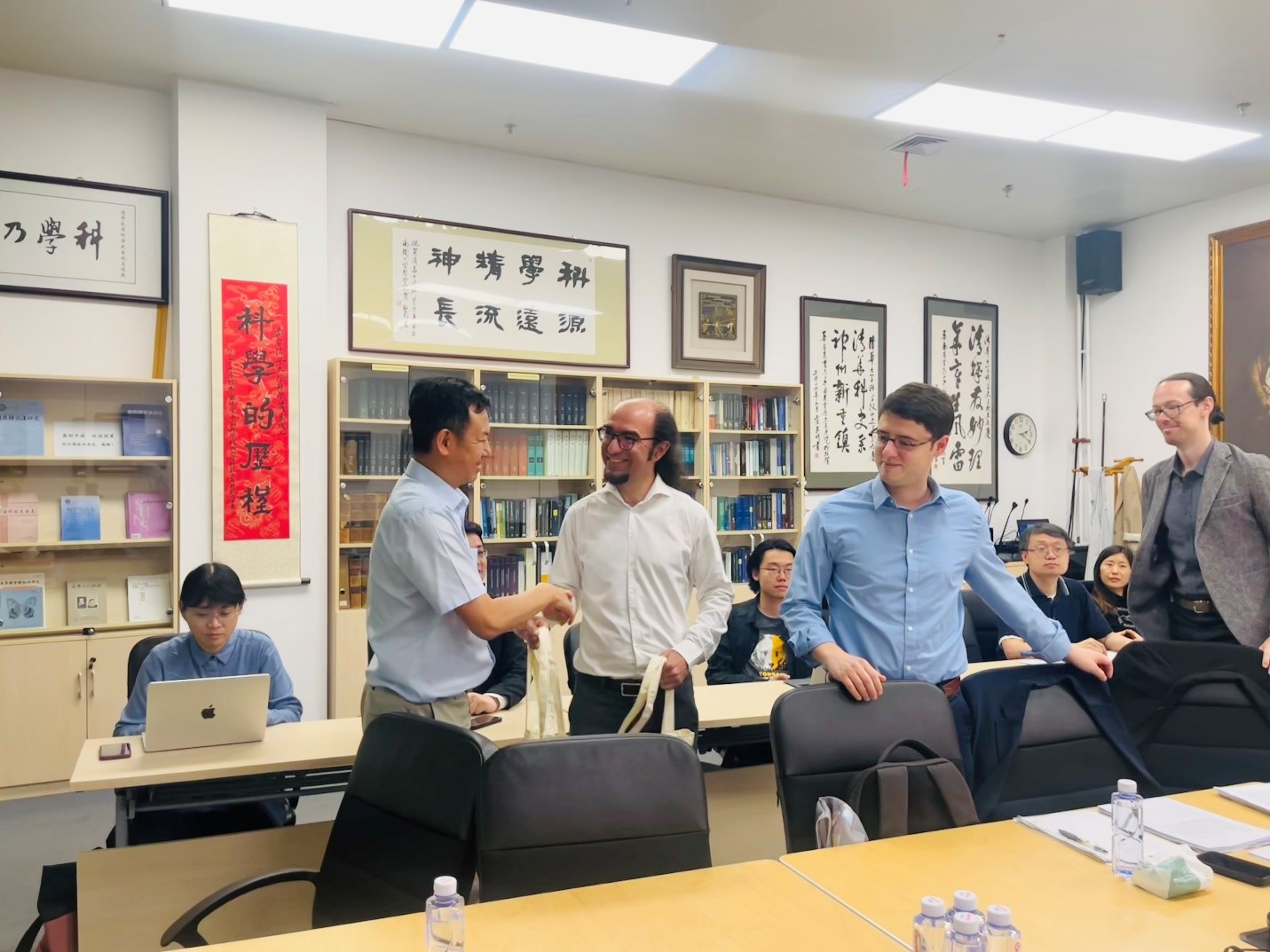
Subsequently, five scholars delivered a series of talks.
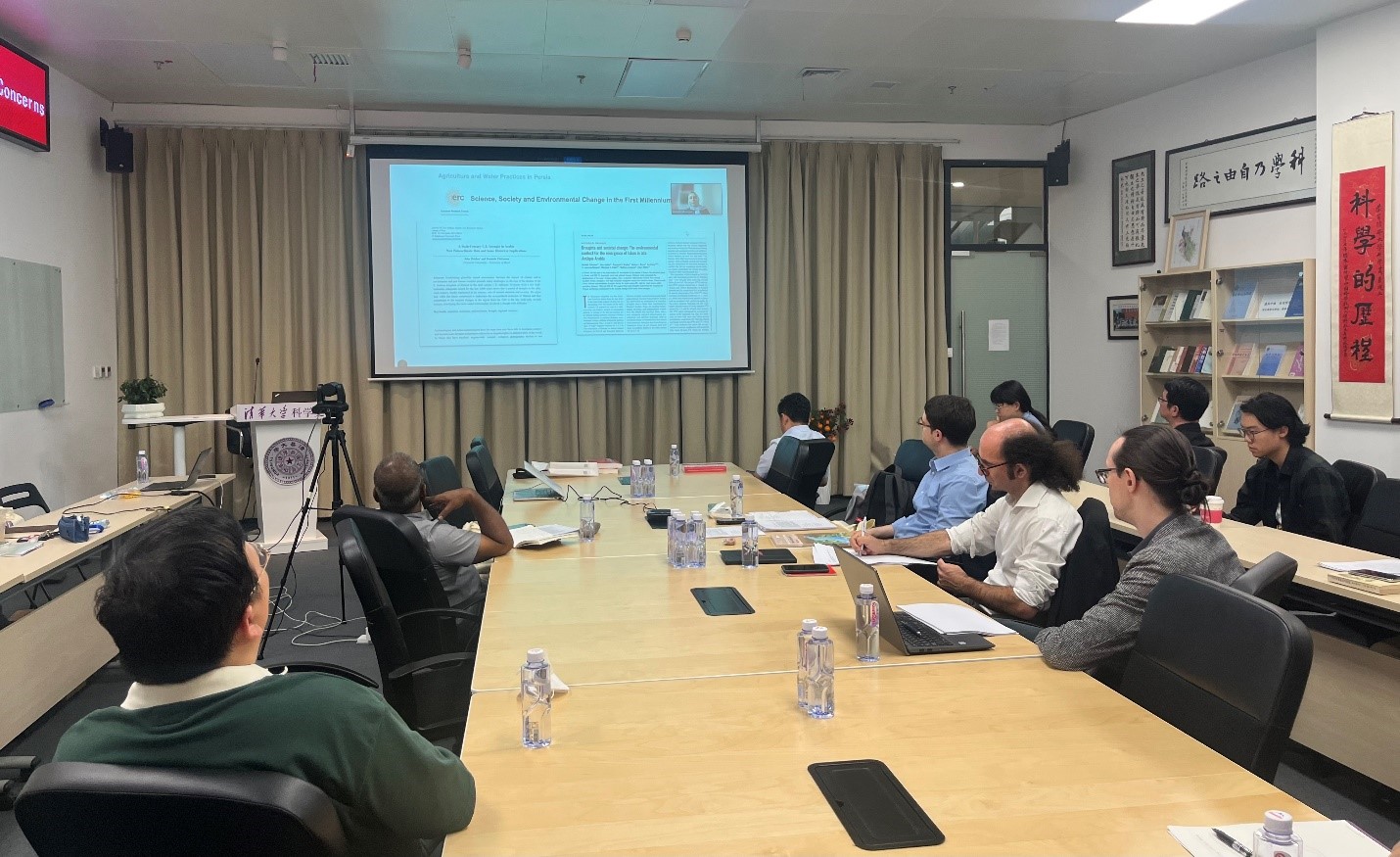
The first talk was delivered by Razieh S. Mousavi (Ca’ Foscari University of Venice), exploring the entanglements between theological knowledge and agricultural practices in Medieval and Early Modern Persia. Mousavi shed new light on the link between astronomical knowledge and weather predictions, specifically rainfalls, as well as how practice influences concepts of seasonality and the elaboration of calendars.
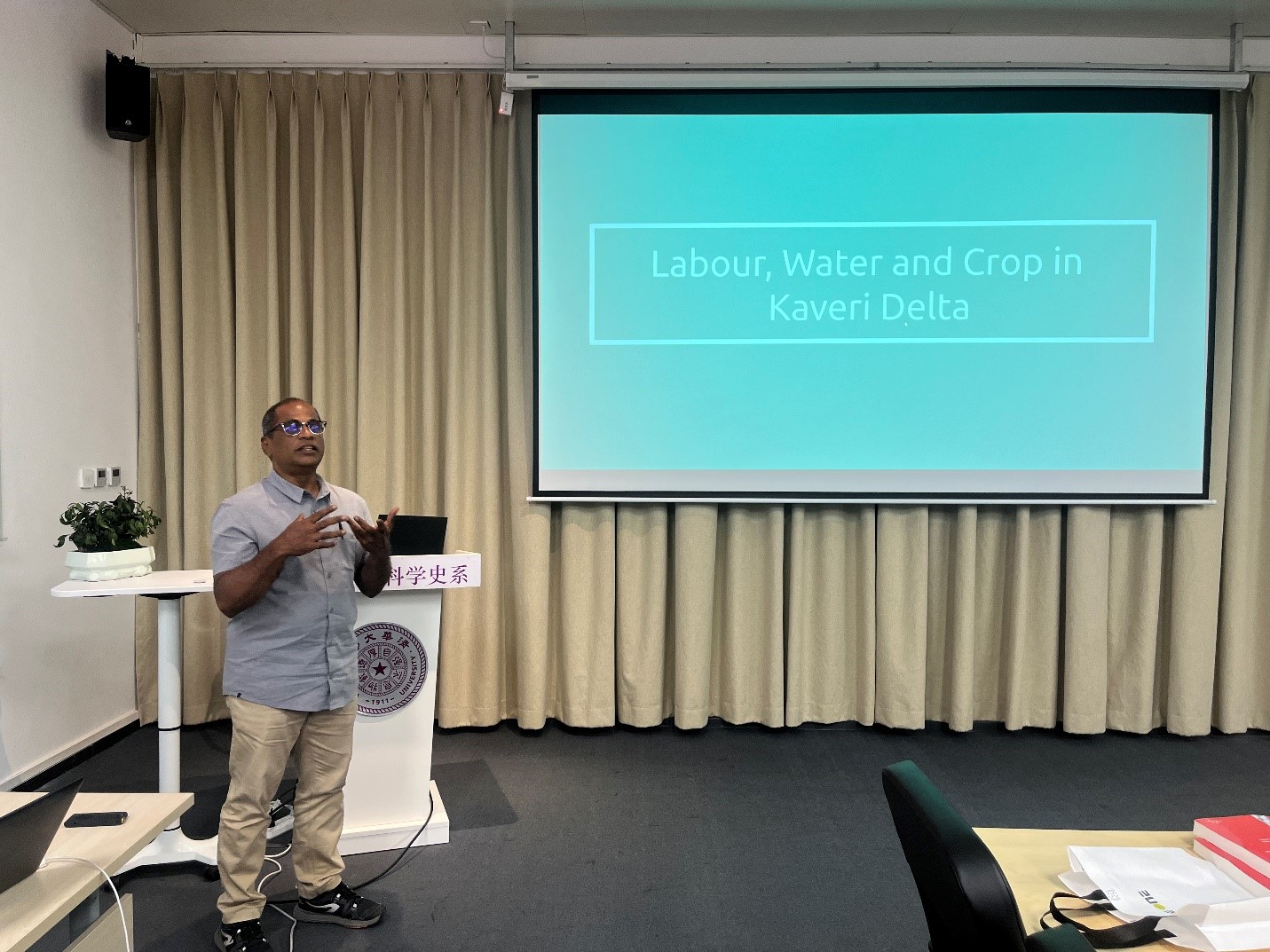
The second talk, delivered by Senthil Babu (French Institute of Pondicherry), dealt with the historical hydrology of the Kaveri River, elucidating the interconnected dimensions of empirical knowledge, commodities, and labor, with a longue durée-approach spanning from the Medieval period to the contemporary climate crisis in the Kaveri Delta.
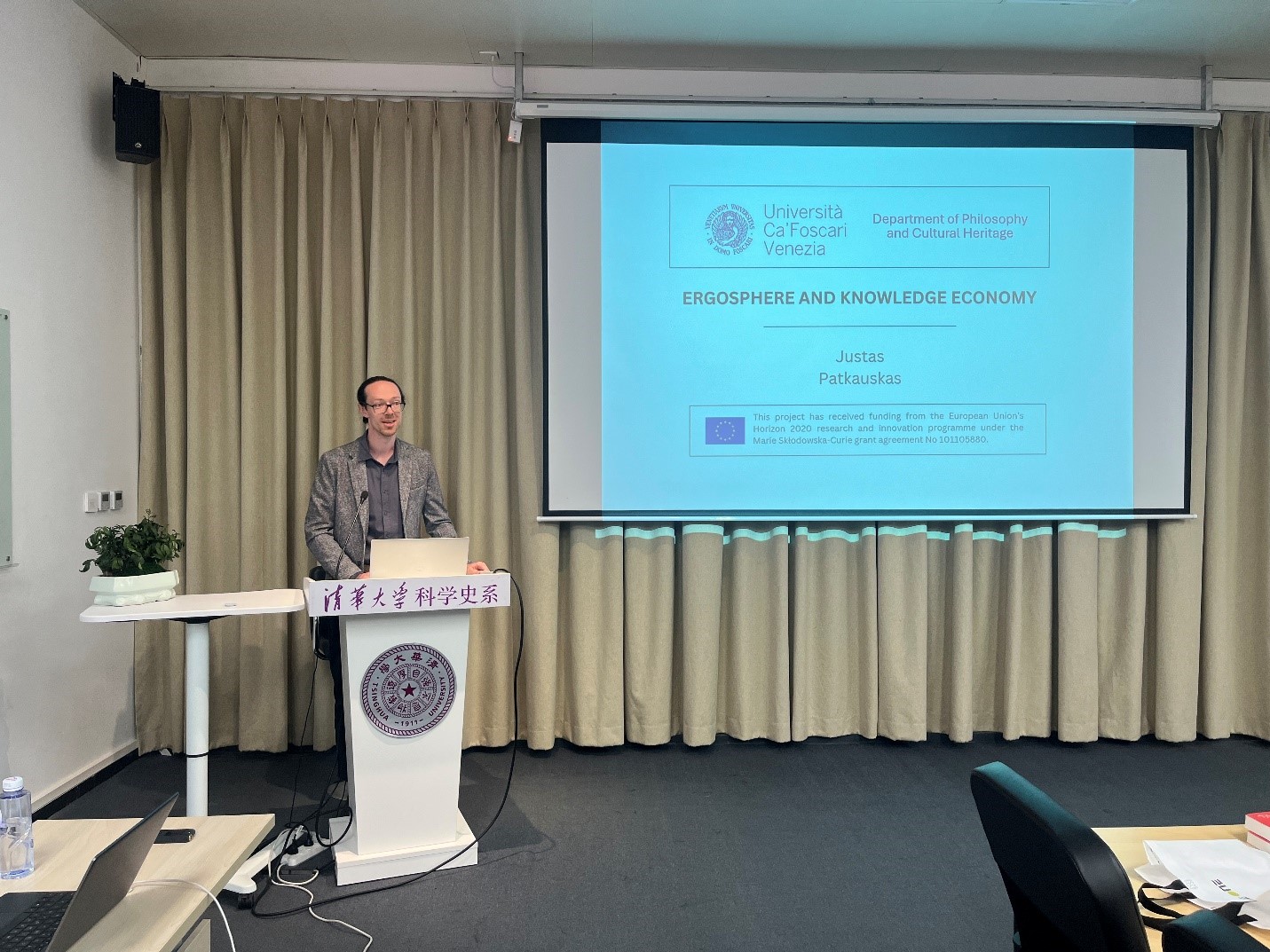
Justas Patkauskas (Ca’ Foscari University of Venice, PI of MSCA-IF project HYB-KNOW, funded by the European Union's Horizon 2020 research and innovation programme under the Marie Sktodowska-Curie grant agreement No. 101105880) delivered a talk on theoretical dimensions useful for approaching the problem of water, spanning from discussions on the interconnection between politics and science diplomacy, particularly the superpowers’ intentions behind the decision to adopt different definitions of fields like geosphere, biosphere, ergosphere, and noosphere.
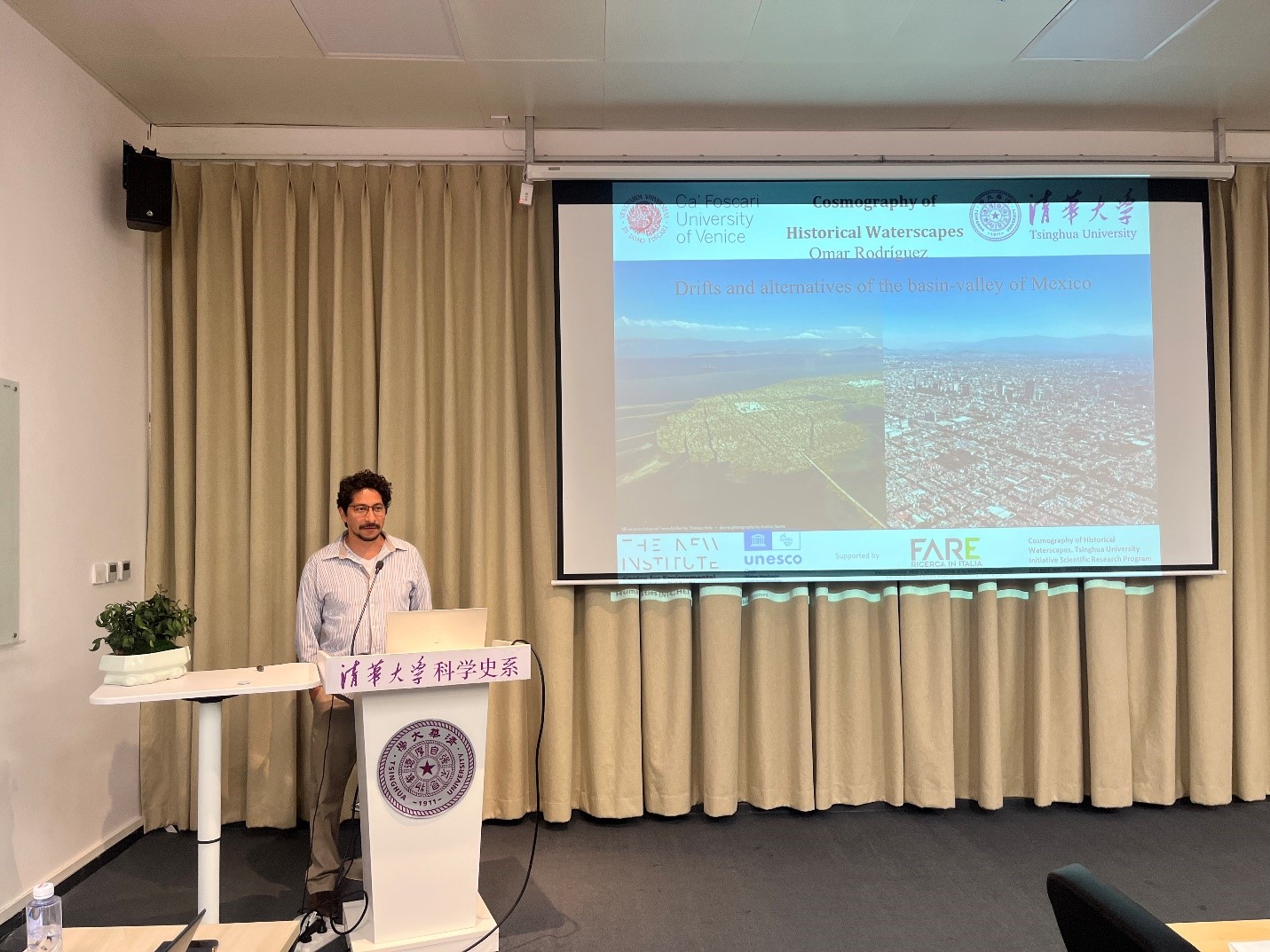
Omar Rodriguez (UNAM, Ca’ Foscari University of Venice) shared his knowledge on artistic and cartographic representations between Europe and the New World, using it as a broad premise to frame his study on the transformations of lakes in Mexico City, and how the similarities between that city and Venice shaped the representations of the former as influenced by the Spanish conquest.
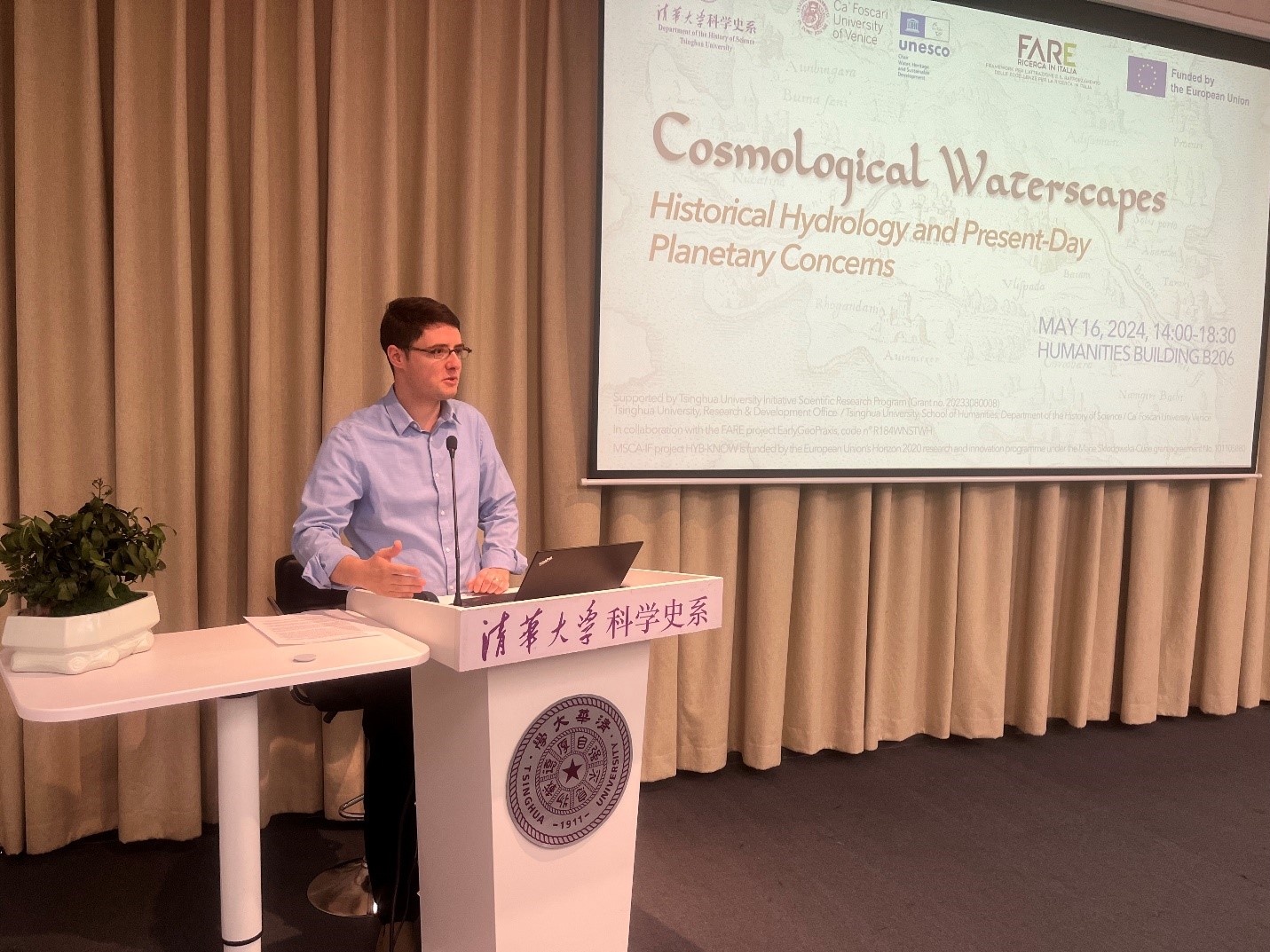
Alberto Bardi’s talk proposed a new interpretation of the philosophical tale authored by the twelfth-century Andalusian scholar Ibn Tufayl, situating this tale in the history of utopian writers and emphasizing the connection between utopian thinking and the dimension of insularity.
Overall, the speakers demonstrated how historical analysis could contribute to discussions on contemporary planetary issues concerning water resources and their sustainability. The contributions delivered at the workshop constitute an essential part of a forthcoming publication on water heritage, treating it as an open-ended historical geo-anthropological process, aiming to share with scholars and the public the knowledge needed to comprehend the current conjuncture marked by socio-ecological imbalances, and to assess alternative pathways to a sustainable future.
The next meeting of this project will take place at the Congress of the European Society of the History of Science in Barcelona in September 2024.


